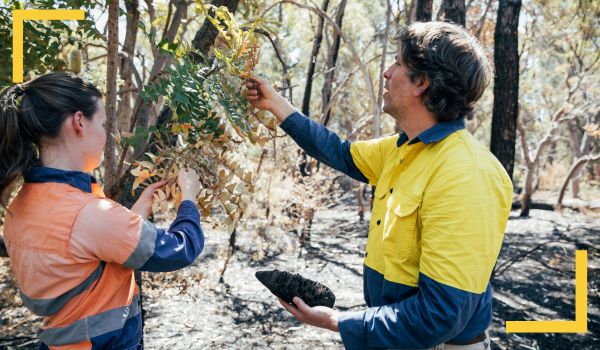Study Science Courses in Australia
If you have a passion for science and want to pursue a career in this fascinating field, Australia offers excellent opportunities for international students to study science courses. Renowned for its quality education system and cutting-edge research, Australia provides a conducive environment for students to delve into various scientific disciplines.
In this article, we will explore the benefits of studying science in Australia, the top universities offering science programs, popular science courses, qualification levels, career prospects, and the vibrant scientific community. Let’s embark on a scientific journey down under!
Introduction to Science Education in Australia
Science education in Australia is highly regarded globally, offering a comprehensive approach to understanding the natural world. Whether you’re interested in biology, chemistry, physics, environmental science, or any other scientific discipline, Australian universities provide a solid foundation for your scientific journey.
Why Study Science in Australia?
Australia stands out as an ideal destination for studying science due to several compelling reasons.
First and foremost, Australian universities offer academic excellence in the field of science. These universities consistently rank among the best in the world, ensuring a high-quality education. The curriculum is designed to foster critical thinking, practical skills, and scientific knowledge, preparing students for future challenges.
Moreover, Australia is at the forefront of scientific research and innovation. By studying science in Australia, you will have access to state-of-the-art laboratories, research centers, and collaborations with leading scientists. This provides a unique opportunity for you to contribute to groundbreaking discoveries and advancements in your chosen scientific field.

Another advantage of studying science in Australia is the wide range of disciplines available. Australian universities offer a diverse array of science programs to cater to various interests and career goals. Whether you aspire to be a biologist, chemist, astronomer, geologist, or environmental scientist, you will find suitable programs and specializations to nurture your passion.
Furthermore, qualifications earned from Australian universities are internationally recognized. A science degree from an Australian institution holds significant value worldwide, opening doors to global career opportunities and research collaborations. The reputation of Australian universities and the rigorous education system contribute to the credibility and respect associated with their science programs.
Popular Science Programs to study
Australian universities offer a wide range of science programs to suit various interests. Some popular science programs include:
Bachelor of Science (BSc)
The Bachelor of Science program provides a solid foundation in scientific principles and allows students to specialize in areas such as biology, chemistry, physics, mathematics, environmental science, and more.
Bachelor of Biomedical Science
This program focuses on the study of human health, diseases, and medical research. Students gain a deep understanding of the human body, biomedical technologies, and the latest advancements in medical science.
Bachelor of Environmental Science
For those passionate about environmental sustainability and conservation, the Bachelor of Environmental Science offers a comprehensive understanding of ecosystems, climate change, natural resource management, and environmental policy.
Bachelor of Physics
The Bachelor of Physics program explores the fundamental principles of physics, including mechanics, thermodynamics, electromagnetism, quantum mechanics, and astrophysics. It prepares students for careers in research, engineering, and academia.
Bachelor of Marine Science
This program focuses on the study of marine ecosystems, oceanography, marine biology, and coastal management. Students gain hands-on experience through fieldwork and research projects in marine environments.
Disciplines within Science
1. Biology: The study of living organisms, their structure, function, evolution, and interactions with the environment.
2. Chemistry: The study of matter, its properties, composition, reactions, and the principles governing chemical interactions.
3. Physics: The study of matter, energy, motion, and the fundamental laws of the universe.
4. Environmental Science: The study of the environment, including ecosystems, natural resources, pollution, and sustainable practices.
5. Astronomy: The study of celestial objects, including stars, planets, galaxies, and the universe as a whole.
6. Geology: The study of the Earth’s structure, materials, processes, and history.
7. Mathematics: The study of numbers, quantities, shapes, and patterns, and their applications in various scientific fields.
8. Computer Science: The study of algorithms, programming languages, data structures, and computing technologies.

Research and Innovation Opportunities
Australian universities actively engage in scientific research and innovation. As a science student, you will have opportunities to participate in research projects, collaborate with renowned scientists, and contribute to scientific advancements. These research experiences enhance your practical skills, critical thinking abilities, and future career prospects.
Career Prospects in Science
A science degree opens doors to diverse career opportunities. Graduates can pursue careers in:
- Research and Development
- Biotechnology
- Pharmaceuticals
- Environmental Consulting
- Energy and Resources
- Healthcare and Medicine
- Data Analysis and Statistics
- Education and Academia
The demand for skilled science professionals is increasing, and Australia provides a favorable job market for science graduates.
Scholarships and Funding
Australian universities offer scholarships and funding opportunities to support international students pursuing science courses. These scholarships are based on various criteria, including academic merit, research potential, and community involvement. It is advisable to explore scholarship options and apply well in advance.
Student Support and Facilities
Australian universities provide comprehensive support services to international students. These services include academic guidance, career counseling, health and well-being support, and assistance with accommodation. The state-of-the-art facilities, including laboratories, libraries, and study spaces, ensure a conducive learning environment.
How to Apply for Science Courses
To apply for science courses in Australia, follow these general steps:
Research and shortlist universities and science programs of interest. Check the admission requirements, including academic qualifications and English language proficiency. Complete the application form and submit the required documents, including transcripts, recommendation letters, and a statement of purpose. Pay the application fee and await the university’s decision.
If accepted, proceed with the enrollment process, including accepting the offer and arranging for student visas.
Conclusion
Embarking on a scientific journey in Australia offers a world-class education, exciting research opportunities, and a vibrant multicultural experience. With top-ranked universities, diverse science programs, cutting-edge facilities, and a supportive academic environment, Australia is an excellent choice for international students aspiring to study science. Start your scientific adventure in Australia today!
FAQs (Frequently Asked Questions)
- Can I work while studying science in Australia?
Yes, as an international student, you can work part-time while studying in Australia. However, there are certain restrictions and conditions. It is important to check the visa regulations and consult your university’s international student support services for more information.
- Are there scholarships available for international students studying science in Australia?
Yes, Australian universities offer scholarships specifically for international students studying science and related fields. These scholarships are awarded based on various criteria, including academic merit and research potential. Research and apply for scholarships well in advance to increase your chances of receiving financial assistance.
- What career opportunities are available for science graduates in Australia?
Science graduates in Australia have a wide range of career opportunities. They can pursue careers in research and development, biotechnology, pharmaceuticals, environmental consulting, energy and resources, healthcare and medicine, data analysis, statistics, and education. The demand for skilled science professionals is growing, providing favorable job prospects.
- How much does it cost to study science in Australia?
The cost of studying science in Australia varies depending on factors such as the university, program, and location. It is advisable to create a budget considering tuition fees, living expenses, accommodation, and other miscellaneous costs. Australian universities also offer scholarships and funding options to support international students.
- How do I apply for a student visa to study science in Australia?
To apply for a student visa, you need to meet the visa requirements set by the Australian government. This includes providing proof of enrollment in a registered science course, proof of financial capacity, health insurance coverage, and meeting English language proficiency requirements. It is recommended to visit the official website of the Department of Home Affairs or consult with a qualified migration agent for accurate and up-to-date information.
